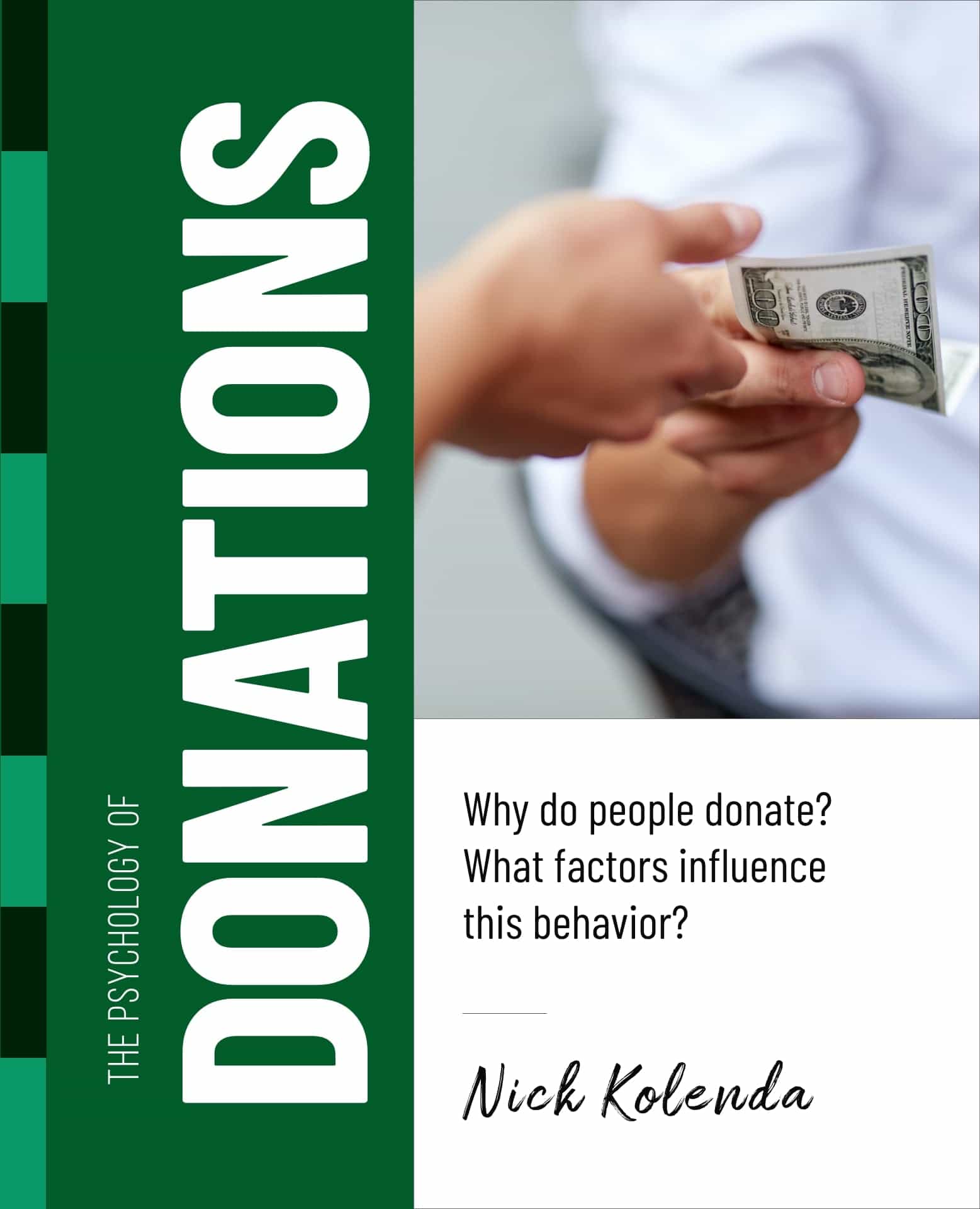
Balance Donations With Misdeeds or Enrichment
Nonprofit
Balance Donations With Misdeeds or Enrichment
People feel obligated to donate if they're reminded of a past misdeed or success.
People want to balance their decisions.
I designed this framework:

It has four behaviors:
- Obligation- You do something good
- Misdeed: You do something bad
- Enrichment: You receive something good
- Mishap - You receive something bad.
Your behaviors tilt the scale left or right. You then desire an opposing behavior for balance (see my book The Tangled Mind).
Donations are obligations, so they tilt right.
Try reminding people of a past misdeed or enrichment to slant their scale left. This imbalance will drive them toward an obligation (e.g., donation) to regain balance.
How to Apply
- Remind Them of a Misdeed. An environmental charity could ask donors if they failed to recycle something recently. People will be able to absolve this misdeed by donating now.
- Request Donations From “Successful” People. Set an egotistic trap. In one study, people were more willing to complete a survey if they learned that researchers needed intelligent people; suddenly they wanted to participate to validate their intelligence (Dolinski et al., 2023). Perhaps a charity could seek donations from “successful” people so that potential donors can validate their identity as a successful person.

- Compare Donations to a Cheap Emotional Product. People were more likely to donate $2 when it was compared to a popular cookie (vs. bar of soap) because people felt guilty not donating (Savary et al., 2015).

- Dolinski, D., Grzyb, T., & Kulesza, W. (2023). Egotistic trap as a social influence technique. Social Influence, 18(1), 2204245.
- Savary, J., Goldsmith, K., & Dhar, R. (2015). Giving against the odds: When tempting alternatives increase willingness to donate. Journal of Marketing Research, 52(1), 27-38.

Want more tactics?
Get all my free donations tactics